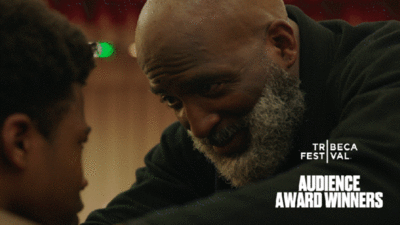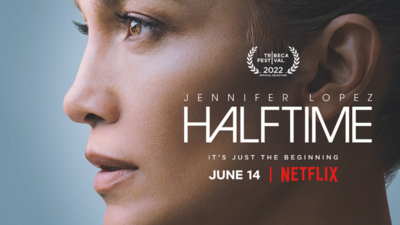
BY JULIA PUGACHEVSKY |
'Alias Ruby Blade' Director Alex Meillier On What Drew Him To This Incredible Story
'Alias Ruby Blade' tells the never-before-heard story of one woman who would do anything to help East Timor's underground struggle for independence -- even if it meant spying, sending secret notes, and risking her life. Here's the story of the director who found her.

Tribeca: From Alias Ruby Blade, we quickly figure out what compelled Kirsty Sword Gusmao to put herself in danger and try to help East Timor gain freedom from Indonesia. But how about yourself? What made you want to tell this story?
Alex Meillier: My Producer (and wife) Tanya Meillier and I were stationed in Timor Leste as a documentary unit for the United Nations Mission in Support of Timor Leste in 2005. We lived in Dili for several months and travelled widely around the country interviewing former resistance leaders and scores of ordinary Timorese. We felt the story was underreported in the West and we started to think about how we could use the personal tales of the resistance leaders to construct a narrative that would encapsulate the struggle. Kirsty's journey became the point of view of the story.
Tribeca: For someone who is ignorant of this movement (shamefully, I'm an example, and have a feeling many people are too), the way this film is structured, you really have no idea where it's going or that it may actually end positively, much like a fictional narrative. Is there a reason you constructed it this way?
AM: Yes. This is quite intentional. We wrote an outline for the story in a three act structure. Throughout the film we tried to cut the scenes like they are happening in the moment, favoring the rawest and most immediate footage. The idea is that even if you do know this story and you know for example that Xanana will be Prime Minister and they will ultimately succeed, we're still going to take the audience somewhere they've never been before in the telling.
Ordinary people really can change the course of history.
Tribeca: You let Kirsty narrate the film and tell the story through her eyes and used older (though incredible) footage of Xanana throughout the film. Is there a reason you didn't directly interview Xanana?
AM: We did interview Xanana. And we did quite a bit more filming with Xanana than appears in the film. However, in the editing, we realised that if we cut to his interview shot in the present day we would take away the power of the enigma of Xanana - so we decided to reveal him to the audience as a character in the story as Kirsty's knowledge of him evolves.

Tribeca: Since the film ends with East Timor reaching its goal and gaining its independence from Indonesia, what do you hope to change in audiences who see this documentary? Are there modern political movements you would want people to participate in? Or is the goal to continue helping East Timor because of its current economic state?
AM: Our goal first and foremost was to make the most gripping piece of cinema that we possibly could. Documentaries do have the power to inspire people to action, ignite debate, and educate, but only if and when the story is good enough to draw in people outside of niche group of activists that are already interested in what you are doing.
We want people who know nothing about the struggle of the Timorese to walk out of the theater and tell their friends to go and see this film. If enough people do that, maybe we can get people motivated to engage with the issues and the ideas in the film. It is also good to remind people who are struggling for human rights against seemingly insurmountable odds that there are success stories. Ordinary people really can change the course of history.
Kirsty's journey became the point of view of the story.
Tribeca: What do you hope audiences take away from (film title)?
AM: A little less fear to act with moral fortitude against blatant injustice and hypocrisy of all forms.
Tribeca: What are you most looking forward to at Tribeca?
AM: The chance to recognize the New York based crew who worked so hard on this film to make it a reality.
Tribeca: What makes (film title) a Tribeca must see?
AM: Romance? Spy story? Revolution? Did we mention it's a documentary?
Alias Ruby Blade premieres Friday, April 19, at the AMC Loews Village 7. For more information and additional showtimes, please visit our Film Guide listing.
